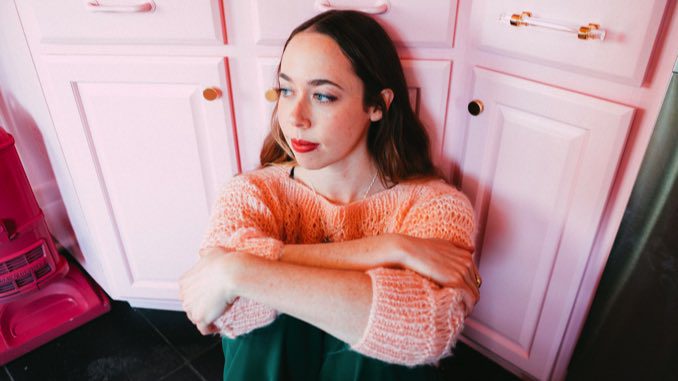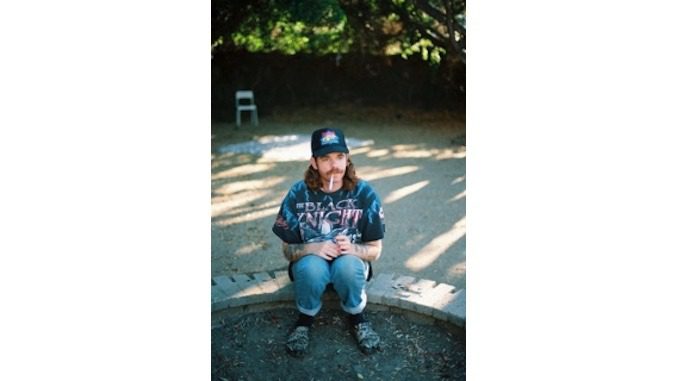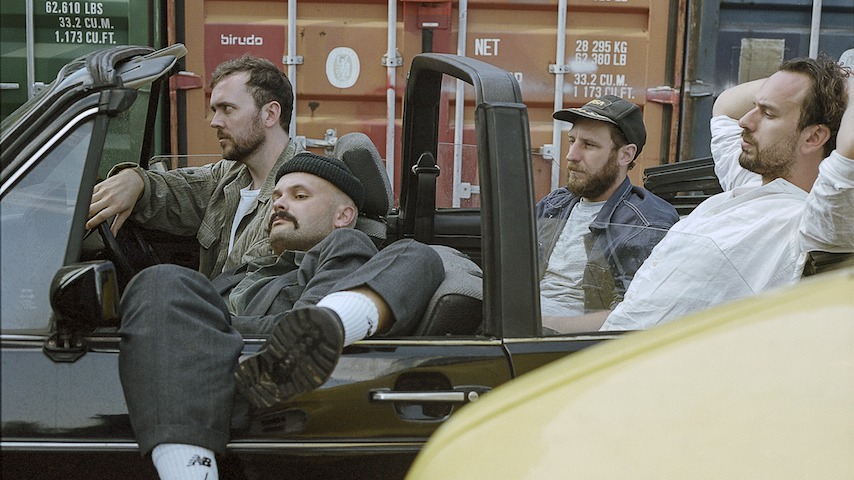“The music business is a cruel and shallow money trench, a long plastic hallway where thieves and pimps run free, and good men die like dogs,” the late Hunter S. Thompson once dryly observed, before tacking on a great rimshot-maestro punchline: “There’s also a negative side.”
It’s cynical wisdom that’s not lost on Sarah Jarosz. She may have been living in city-slick New York for the past seven years—where she tracked her recent Grammy-winning, folk-flavored charmer World on the Ground with noted producer John Leventhal, himself a multiple Grammy winner and also husband to country royalty Rosanne Cash. But this Wimberley, Texas-bred tunesmith never forgot her humble small-town roots, and she’s worked hard at staying grounded, even as her career rocketed skyward with: recurring gigs on NPR’s Prairie Home Companion, then its Chris Thile-hosted replacement show, Live From Here; I’m With Her, the acoustic power trio she formed with fellow NPR alums Sara Watkins and Aoife O’Donovan; collaborations with everyone from Bela Fleck to Jerry Douglas, Kate Rusby and Shawn Colvin; and four Grammys, to date, including her latest World win for Best Americana Album. Her new release, Blue Heron Suite, is an intricate song cycle rooted in a concert composition commission she received in 2017 from the FreshGrass Foundation. “But I never forgot where I came from,” she swears. And she means it.
Jarosz was calling from her new, less-hectic home of Nashville, where she just moved, mid-pandemic. Ever since her rustic 2009 debut for Sugar Hill, Song Up in Her Head, she’d recorded all four pre-World albums there with co-producer Gary Paczosa, so fans probably assumed she was a Music Row regular, she reckons. “So I’ve spent a lot of time here, but I’ve never actually lived here,” she clarifies. “And I was kind of looking to get out of New York when things started getting bad in the city last March.” And when her beau and longtime band bassist Jeff Picher bought a house in Nashville, she took it as a motivating omen. “So I kind of came down here looking to ride out the storm, and wound up just moving in,” she adds. And it’s helped to sharpen her creative vision even further.
“Sometimes, it’s easy for the business side of things to sort of take over,” she explains, sagely. “Just because if you care about what you do, you want to care about every aspect of it. But ultimately, as a creative person, I feel like if I’m ever getting sidetracked in that way—if I’m ever feeling like the business is coming first—then the music is always my barometer, and the centering factor in my life. And as long as the music is coming first? Then things usually work out pretty well.” Ever since childhood, Jarosz has been sensitive to signs and wonders, trail markings that notify you if you’ve strayed from the spiritual path. “I’m very symbol-oriented, and a lot of that comes from my mom,” says the artist, who has an eerie connection with the number five. “She’s the one who believes in good omens and bad omens and all these personal things. And the blue heron has always been a good-omen symbol for her and for our family, so I kind of gravitated toward that symbol pretty naturally.”
Hence the interlude-cushioned 11-track Blue Heron Suite, and its delicate heartfelt, deeply personal numbers like “Mama,” “Morning,” “Across the Canyon” and the lute-gentle “Blue Heron,” based on the regal, iridescent-plumed wading birds that the singer and her mother regularly studied on beachfront walks they took when she was younger. The bird rose phoenix-like in her mind concurrently with the commission she was assigned in May 2017—to pen, over one summer, a conceptual piece of music to be premiered live at that year’s FreshGrass Festival in September. Sadly, she didn’t have to dig too deep for subject matter—her mother had been diagnosed with breast cancer at the same time, and the gravity of it all was weighing heavily on her while touring behind her fourth effort, 2016’s Undercurrent. “It was a very busy time for me, so it was hard to not be with her when she was going through that,” she recalls (her mother is now in full remission, thankfully). “But part of my reasoning for not traveling to be with her was, my dad had recently retired, so he could take her to all of her appointments and be right there next to her. So he was incredible throughout the whole process.”
Jarosz hadn’t planned on lyrically delving deep into mortality. But aesthetically, the two events dovetailed nicely into her most poignant, reflective work yet, all sung in her signature warm, ember-smoky warble. To complete the suite, she pushed herself in new directions that hadn’t occurred to her before. At first, her mission, if she chose to accept it, seemed disarmingly simple: conjure up an original 35- to 40-minute composition to be performed exclusively at the popular FreshGrass Festival. It felt like a normal gig booking, but with a slightly different way in. After she accepted the challenge, it began to grow in scope and magnitude. “I wasn’t being asked to write a song or even a ten-minute piece,” she says. “That many minutes of music is an album, basically. So once I decided to write this piece that was meant to be played from start to finish, with recurring lyrical and musical themes, I narrowed in on the imagery and began figuring out how the pieces of this puzzle fit together.”
In “Mama,” for example, Jarosz wanted to use the most straightforward, universally understood words and sentiments. “It’s a child simply longing for their mother, with this kind of visceral rip-your-heart-out feeling,” she says. “I was trying to be as simple as possible, and I thought that was the most effective way to get to the root of what I was feeling. And then the theme, musically, was combining how the coast, the beach can at once feel very calm and quiet, and the next moment feel intimidating and ominous, and thereby make you feel incredibly small.” All presided over by the great blue heron himself. Or herself? “I think it’s herself—herself, definitely,” she adds.
The 2017 Blue Heron Suite live debut was a hit, and the hushed crowd listened reverently to every last thoughtful note. Naturally, it was soon pipelined for its current studio edition—yet another project that Jarosz doggedly saw through to satisfying completion. She’s had that same drive ever since her youth, when she was studiously mastering non-pop instruments like clawhammer banjo and octave mandolin. There wasn’t one moment of sudden realization, though. “I was just always in my room, playing mandolin, and I knew from a very early age that that was what I was good at and what I was going to do with my life. And I enjoyed working on it, locking myself in my room and slowing down CD’s so I could really learn the songs and eventually start writing my own. There was never anything else that I even vaguely considered doing—it was just always music, for as long as I can remember.”
The folk/country/bluegrass genre Jarosz was drawn to was more female-friendly than some others, so she figures that she dodged a big patriarchal bullet in the post-#metoo era. “Not to take away from anyone else’s personal experience, but I feel incredibly thankful and grateful that it didn’t affect my own personal experience,” she notes. “And I’ve actually said, from the very beginning, that so many of my heroes and mentors were guys. And there were numerous times when I was young and starting to go to music camp, and I would sometimes be the only girl in the room when we were passing around the songs. And yes, I’m not going to lie—there were times when that was intimidating and scary. But I used any of those intimidating feelings that I might have felt to just be the best on my instrument as I could possibly be. And I had so many great mentors, like Chris Thile, Mike Marshall, David Grisman, Tim O’Brien—all of those guys were just so kind and warm to me from when I was just a kid. They treated me like a peer, and I always felt respected.
“And again, like I was saying earlier, if the music business ever got in the way, it was always the music that I returned to,” she concludes. “The music was always my center of gravity.”
So if there’s a negative side to the niche market this vocalist has cornered, she has yet to find it.




